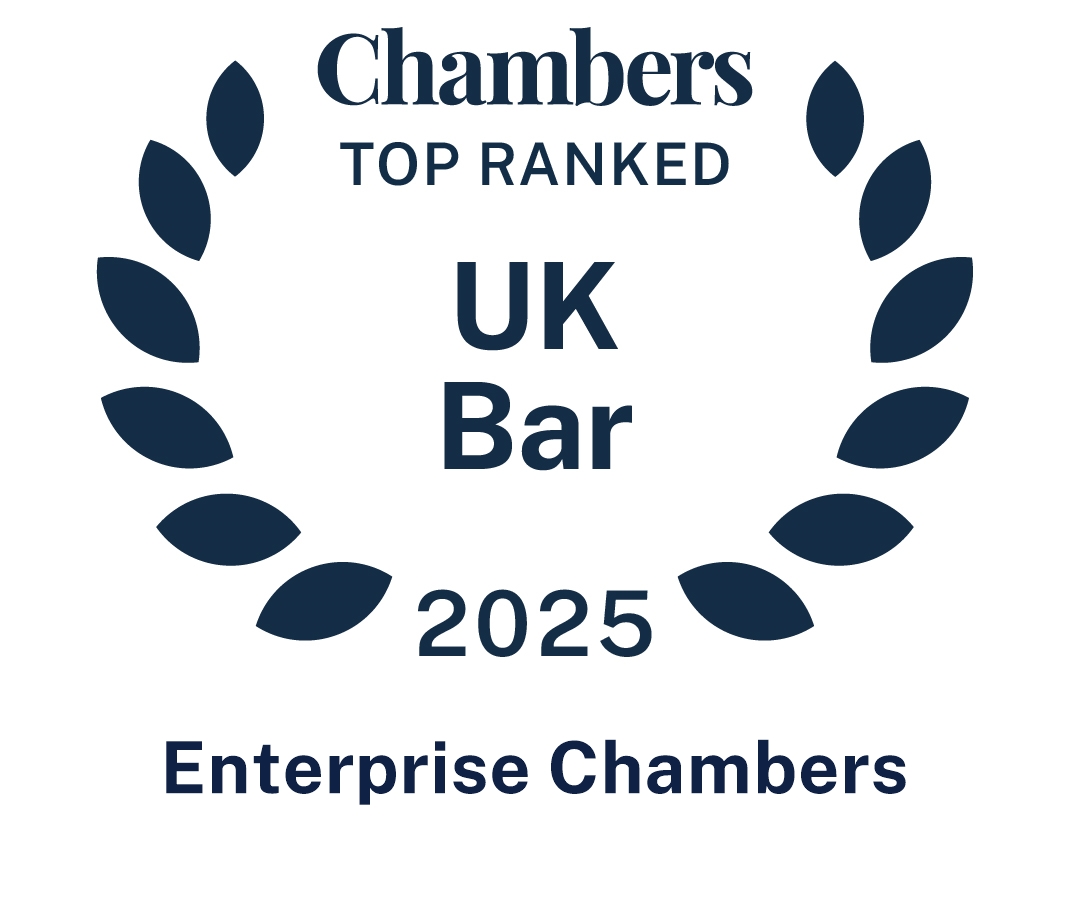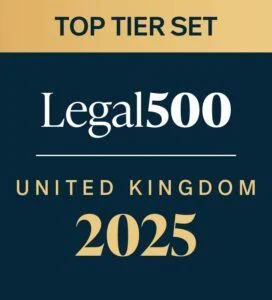Interim Injunctions in Commercial and Chancery cases – is American Cyanamid the test
Certain cases recently before the Chancery Division, Commercial Court and Circuit Commercial Courts are a reminder that if the terms of an interim injunction would affect freedom of expression, the test whether to grant interim relief is NOT American Cyanamid [1].
The test in those cases will be (at least) s.12 (3) Human Rights Act 1998 (“HRA”): i.e., whether the applicant is “likely to establish [at trial] that publication should not be allowed”, “likely” meaning “more likely than not”[2].
If, however, from the evidence or skeleton argument, it is clear that the nub of the complaint is really about damage to the claimant’s reputation, even more stringent rules apply. In that case, the claim must be shown to be “bound to succeed” before interim relief will be granted[3].
Examples of Commercial/Chancery areas where these issues have arisen include:
- Ransom hacks: when an injunction is sought, generally against a “person or persons unknown” who have hacked into the applicant’s systems and are threatening to publish information about the applicant’s business unless paid a ransom, usually in cryptocurrency[4].
- Disputed contract or licence terminations: where there is a disputed termination of a long-term contract or licence agreement, and part of the relief the applicant seeks is an order preventing the respondent from telling anyone that the contract or licence has been terminated.
- Multi-party freezing orders where parties served first are injuncted from telling any other person about the fact of the injunction until all parties have been served.
- Commercial employment disputes where an injunction is sought against current or former employees, who have taken what is alleged to be confidential information from their employer and are threatening to publish it to third party regulators, to the Press, on a website (suspected to be their own), or to the employer’s customers, for example, raising alleged safety concerns about the employer’s products, or environmental, social and governance issues relating to the employer’s operations.
- An order restraining the respondent from publicising the existence of foreign court proceedings it had commenced making allegations concerning the claimant and the fact and commencement of the English injunction proceedings.
- Applications for Bankers Trust or Norwich Pharmacal orders where the third party is ordered not to inform any other party of the proceedings or the application[5].
Section 12(2) HRA provides that no injunction is to be granted unless the Court is satisfied that the applicant has taken all practical steps to notify the respondent, or there are compelling reasons why the respondent should not be notified. ‘Compelling reasons’ must be shown on credible evidence e.g., that the respondent would publish the material sought to be restrained if given notice of the application, e.g., in a blackmail situation. If publication has already occurred, there are no compelling reasons for applying for interim relief without notice.
In cases where it applies, unless the requirements of s. 12(2)(a) HRA are satisfied, the Court has no power to grant an injunction. It is a jurisdictional threshold[6]. Applications without notice which engage s.12 HRA and which do not follow the above requirements will fail.
If s.12(2) is not referred to in an injunction application potentially raising freedom of expression, an applicant will be vulnerable to a charge of “wrong test”. Interim relief granted without notice on the wrong test will likely be discharged on the first return date, costs disallowed, with consequences for the usual undertaking in damages. Where reputation is raised in the evidence or skeleton argument, the requirement that the case be “compelling” rather than “good” requires a far higher standard to be shown on credible evidence.
Section 12 HRA applies to freezing injunctions, although only to that part of the order sought which relates to freedom of expression, such that different tests will apply to different parts of the order for “mixed injunctions”.
It is not only media cases to which the different tests apply. In the school sex education case, Birmingham CC v Afsar [2019] EWHC 1560 (QB), no reference was made to s.12 HRA in the without notice application. On the return date, it was said that s.12 did not apply because “publication” in s.12(3) had a limited meaning and was restricted to commercial publication. This would have given commercial publishers preferential treatment compared to individuals on social media, some of whom have larger readerships than some paid-for newspapers. Warby J (as he then was) rejected a limited meaning of publication, making the fundamental point that in the law of defamation, “publication does not mean commercial publication, but communication to a reader or hearer other than the claimant”[7]. It is a technical word with a technical meaning.
Types of questions for the court on an interim application raising freedom of expression are: what is the nature of the information being disseminated? Does the public have a right to know it? Is there justification for restraint? Should a disgruntled the employee be restrained from going to the Regulator?
In Awbury Technical Soluctions LLC v Karson Management (Bermuda) Ltd [2019] EWHC 233 (Comm), an injunction was granted to restrain misuse of confidential information. Butcher J found the suggestion that s. 12(3) HRA applied surprising, and although he held that s.12(3) was capable of applying in a commercial context, he did not consider that case to concern Karson’s freedom of expression.
Media and Communications (“MAC List”) Claims – CPR Part 53
A High Court claim must be issued in the KBD MAC List if it is or includes claims for defamation, misuse of private information, data protection and/or harassment by publication. A claim not falling within these categories may be issued in the MAC List if the claim arises from the publication or threatened publication of information via the media, online or in speech; or other activities of the media.
A MAC List Judge (including Fancourt J and Meade J in the Chancery Division) may transfer a pending claim into or out of the MAC List under CPR Part 53 PDA.
Anonymity orders
There is a strong presumption that parties to proceedings will be named[8]. Questions of open justice will arise in breach of confidence and privacy cases, and any derogation must be necessary and appropriate e.g., if the subject matter of the dispute would be at risk of being destroyed if a party was not anonymised. Ask: what is the claimant by the proceedings seeking to protect? In blackmail cases, the court will ask: what type of blackmail is it[9]? In privacy cases, there are very few in which interim injunctions are sought to prevent disclosure and the parties are named, because the court would inevitably have to deal in a public judgment with private matters, the disclosure of which the claimant seeks to prevent. These considerations do not arise in most harassment proceedings[10]. Anonymity orders should be sought before the Claim Form is issued as it is more difficult to succeed if there have been earlier hearings in public. Applications under CPR 39.2(4) have two parts: anonymising the party by permission to issue the Claim Form using a pseudonym under CPR 16.2 and an order prohibiting identification, typically under s.11 Contempt of Court Act 1981[11].
Hearings in Private
In deciding whether to hold a hearing in private, the court must consider any duty to protect freedom of expression which may be affected – CPR 39.2. By CPR 39.2 (3), a hearing, or any part of it, must be held in private if, and only to the extent that, the court is satisfied of one or more of the matters in sub-rules (a) to (g) and that it is necessary to sit in private to secure the proper administration of justice i.e., (a) where publicity would defeat the object of the hearing… (c) it involves confidential information (including information relating to personal financial matters) and publicity would damage that confidentiality… (e) it is a hearing of an application made without notice and it would be unjust to any respondent for there to be a public hearing… (g) the court for any other reasons considers this to be necessary to secure the proper administration of justice.
Super Injunctions
An injunction that prohibits reporting of the fact of the proceedings including on third parties who have knowledge of the terms of the injunction, is subject to the Spycatcher principle[12] referred to in the Practice Guidance at [46], is wholly exceptional and requires very clear justification[13]. Usually there will be lesser orders that can be sought to achieve the legitimate objective.
The Public Domain Exception
Deleting this exception from the Model Order[14] requires justification. Whether a public domain exception would defeat the purpose of granting the injunction depends on what is sought to be protected: harassment, breach of confidence. Availability of information online may defeat the purpose of a breach of confidence injunction but may not do so for a privacy injunction. The difference between the two is discussed in PJS v News Group Newspapers Ltd [2016] AC 181 [25] – [32].
Author: Madeleine Heal
Footnotes
[1] American Cyanamid Co v Ethicon Ltd (No 1) [1975] AC 396; White Book 2023 Vol 2 Section 15
[2] Cream Holdings Ltd v Banerjee [2005] 1 AC 253; YXB v TNO [2015] EWHC 826 (QB) [9]
[3] Bonnard v Perryman [1891] 2 Ch 269; LJY v Persons Unknown [2018] EMLR 19 [41] – [43]
[4] AA v Persons Unknown [2020] 4 WLR 35, in which the court was provided in a confidential exhibit with confidential information which was necessary properly to rule on the application, orders were made for a hearing in private, anonymisation and limited access to the court file as publicity would potentially tip off the persons unknown to enable them to dissipate the Bitcoins (the ransom had been paid), there would be the risk of further cyber or revenge attacks on both the Insurer and the Insured by persons unknown and there would be a risk of copycat attacks on both. See also Armstrong Watson LLP v Persons Unknown [2023] 4 WLR 41.
[5] LMN v Bitflyer Holdings Inc [2022] EWHC 2954 (Comm) in which a cryptocurrency exchange seeking to recover millions of dollars’ worth of cryptocurrency after it had been hacked was granted permission to serve out and by alternative means against six other cryptocurrency exchanges, and granted Bankers Trust orders against the six defendants requiring them to provide KYC and anti-money laundering information that had potential relevance to identifying the individuals behind the fraudulent transactions. The court ordered a hearing in private and limited access to the court file.
[6] ND v KP [2011] EWHC 457 (Fam); O’Farrell v O’Farrell [2012] EWHC 123 (QB); Bristol City Council v News Group Newspapers Ltd [2012] EWHC 3748 (Fam) [2013] 1 FLR 1205 [23] – [24] Baker J.
[7] Lachaux v Independent Print Limited [2019] UKSC 27 [18] (Lord Sumption)
[8] Various Claimants v IPSA [2022] EMLR 4
[9] In R v Wright [2021] EMLR 3, Tesco was refused anonymity as the victim of a blackmail attempt by Wright to threaten to contaminate food on sale in its shops (and did so). Anonymity is reserved to the “pay me £50k or I’ll reveal you’re having an affair” type of blackmail.
[10] Khan v Khan [2018] EWHC 241 [89] – [90]. Applications under the Protection from Harassment Act 1997 are not usually based on the protection of private information. There is normally no risk that the administration of justice will be frustrated by the proceedings being heard in open court. The exception is the type of blackmail harassment claim.
[11] Lupu (formerly AAA) v Rakoff [2020] EMLR 6 [21] – [22]
[12] Nature of the liability of those not directly bound by an order Att-Gen v Punch Limited [2003] 1 AC 1046 [87]
[13] Practice Guidance [2012] 1 WLR 1003 [15] (“Practice Guidance”)
[14] ibid


